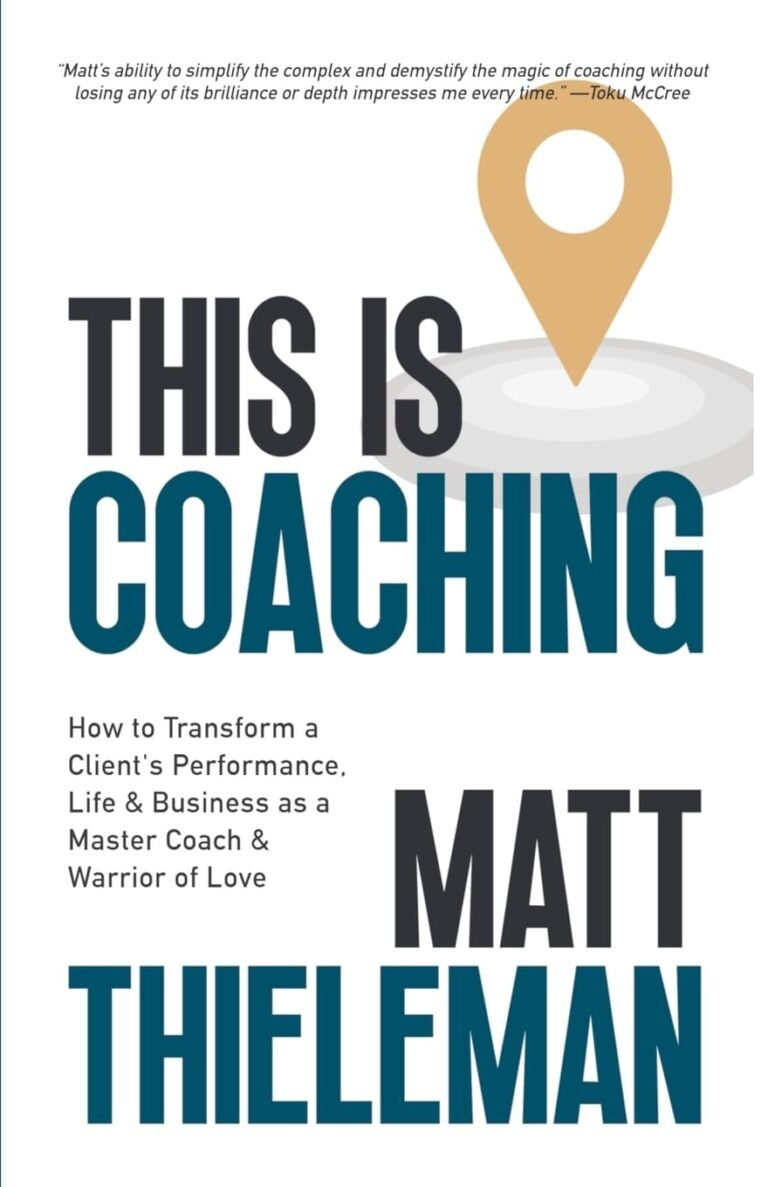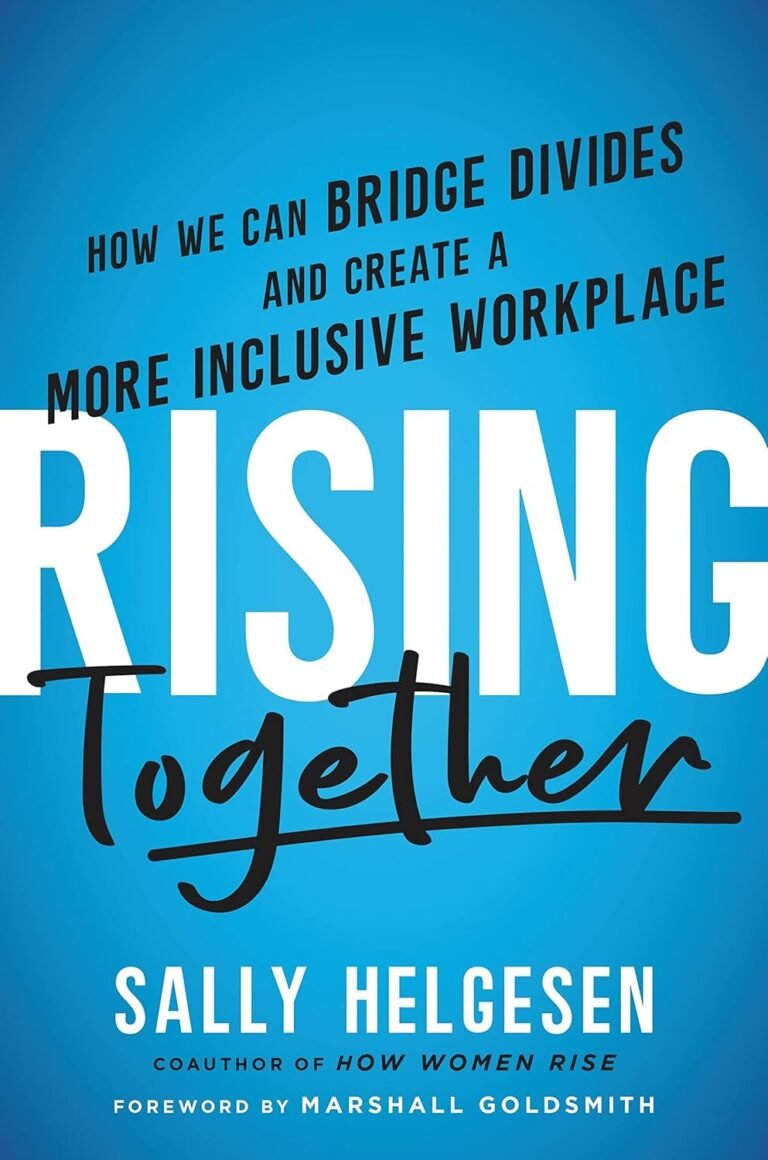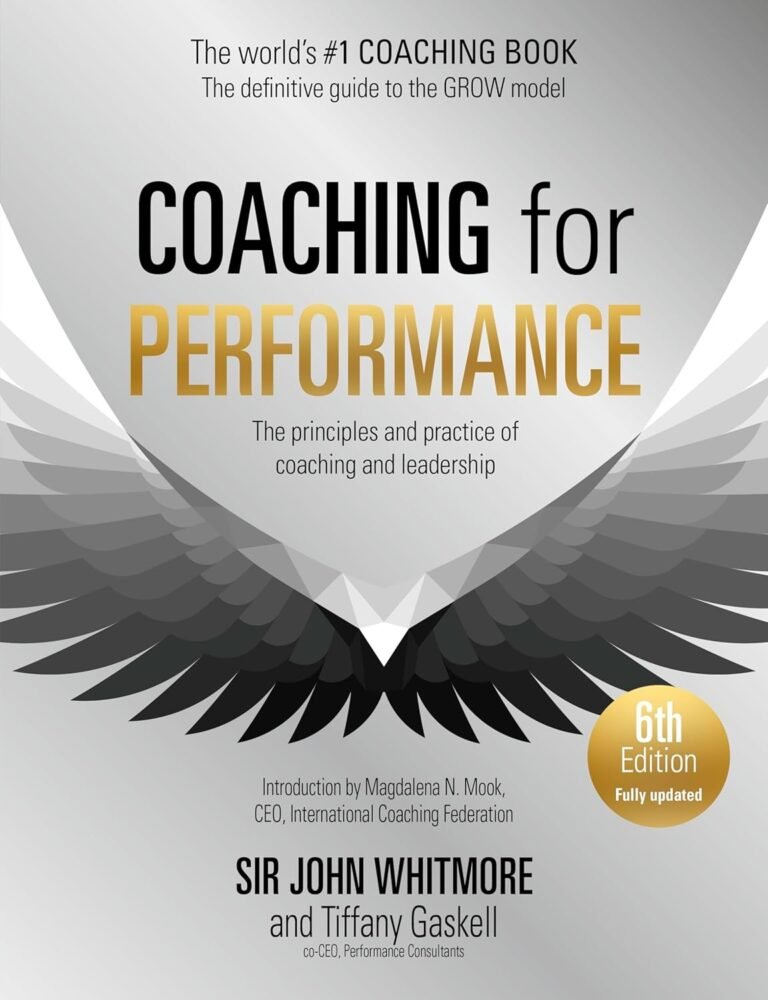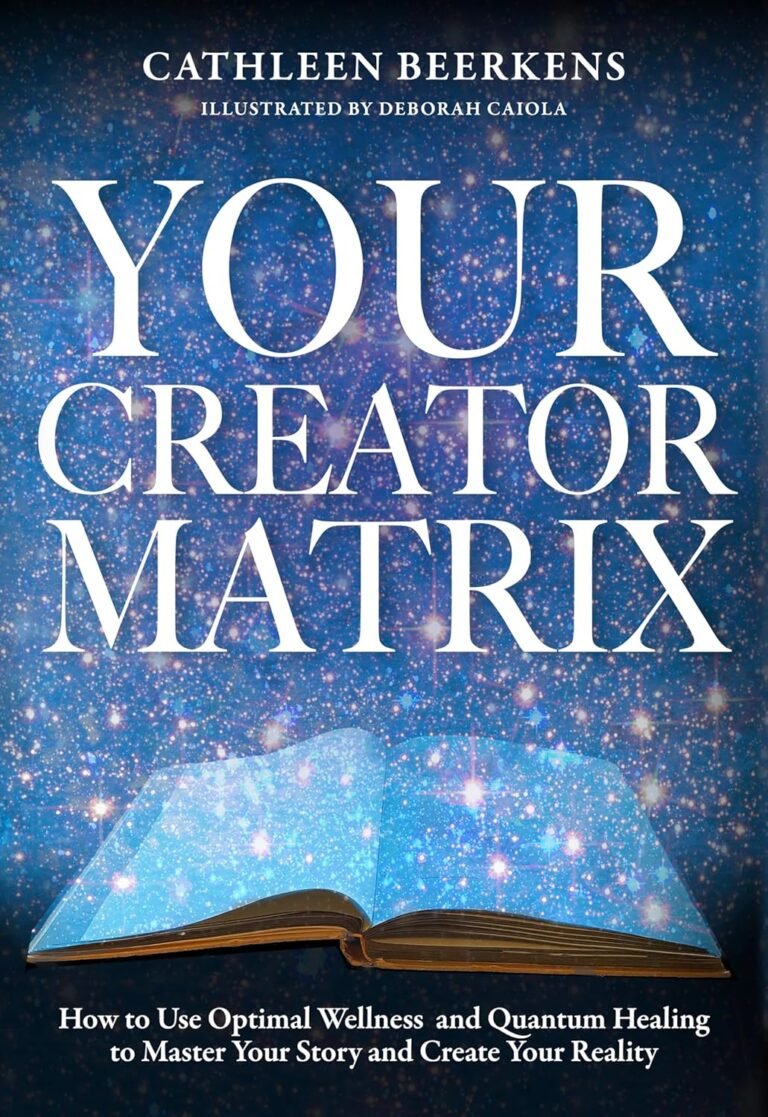From a founding member of the coaching movement comes a detailed guide to mastering one of a coach’s toughest skills: thoughtfully reflecting clients’ words and expressions back to them so they see themselves and their world through new eyes.
“Coaches rely far too much on asking open-ended questions,” says Marcia Reynolds. But questions only seek answers–inquiry provides insight. When, instead of just questions, clients hear their thoughts, opinions, and beliefs spoken by someone else, it prompts them to critically consider how their thinking affects their goals. Reynolds cites the latest brain science to show why reflective inquiry works and provides techniques, tips, and structures for creating breakthrough conversations.
This book will free coaches from the cult of asking the magical question by offering five essential practices of reflective inquiry: focus on the person, not the problem; summarize what is heard and expressed; identify underlying beliefs and assumptions; unwrap the desired outcome; and articulate insights and commitments. Using these practices, combined with a respectful and caring presence, helps create a space where clients feel safe, seen, and valued for who they are. Coaches become change agents who actively recharge the human spirit. And clients naturally dive deeper and develop personalized solutions that may surprise even the coach.
Introduction to Reflective Inquiry in Coaching
Reflective inquiry is a transformative approach used in coaching, grounded in the idea of fostering deeper understanding through introspection and critical thinking. This concept emphasizes the importance of engaging clients in a process of self-exploration, allowing them to uncover their thoughts, feelings, and motivations. Reflective inquiry encourages individuals to examine their experiences from different perspectives, ultimately leading to greater self-awareness and personal growth. A pivotal figure in advancing this approach is Marcia Reynolds, whose work has significantly shaped the coaching landscape.
Marcia Reynolds is recognized for her book, “Coach the Person, Not the Problem,” which articulates the principle that effective coaching transcends mere problem-solving techniques. Instead, it focuses on understanding the individual behind the challenges they face. By employing reflective inquiry, coaches can guide clients toward discovering their own solutions rather than imposing answers. This process not only enhances the coaching dialogue but also empowers clients by validating their unique experiences and insights.
In contrast to traditional questioning techniques, which often seek direct answers or quick resolutions, reflective inquiry invites a more nuanced and open-ended exploration of issues. Coaches utilizing this method ask thoughtful questions that prompt clients to dig deeper into their beliefs and behaviors. This approach leads to a richer understanding of the client’s circumstances and, ultimately, more effective strategies for addressing their concerns.
Through reflective inquiry, clients are encouraged to take ownership of their experiences, fostering a sense of agency and responsibility. As they engage in this process, they become more equipped to navigate challenges, making it a vital component of a successful coaching relationship. The exploration of reflective inquiry not only enhances clarity and insight but also cultivates a deeper connection between coach and client, setting the stage for meaningful change.
The Five Essential Practices of Reflective Inquiry
Reflective inquiry, as emphasized by Marcia Reynolds, revolves around five essential practices that facilitate deeper engagement and understanding in coaching contexts. The first practice emphasizes focusing on the person rather than solely on the problem. This approach encourages coaches to view clients holistically, recognizing their individual experiences, emotions, and values. By prioritizing the person, coaches cultivate trust, which fosters an environment conducive to growth and exploration.
The second essential practice involves summarizing client expressions. Summarization serves multiple purposes; it not only validates the client’s feelings and thoughts but also ensures clarity in communication. By reflecting back what clients have shared, coaches can reinforce understanding and uncover any gaps or misinterpretations in the dialogue. This active listening technique heightens engagement and enhances the coaching relationship.
The third practice is the identification of underlying beliefs and assumptions. Coaches guide clients in unearthing these often subconscious narratives, which significantly influence their behaviors and decision-making processes. By confronting these beliefs, clients can gain clarity on how such assumptions shape their realities, allowing for transformative shifts in perspective.
The fourth practice revolves around unwrapping desired outcomes. Coaches help clients articulate their goals, aspirations, and intentions. This practice is essential for ensuring that sessions remain focused and aligned with what truly matters to the client. By clearly defining desired outcomes, clients can better navigate their journeys and track their progress.
Lastly, the fifth practice is articulating insights and commitments. Coaches encourage clients to reflect on their discoveries and to make conscious commitments towards action. This culmination of the reflective inquiry process solidifies learning and fosters accountability, thereby reinforcing the client’s motivation to achieve their goals. Each of these practices, when implemented effectively, enhances client engagement and fosters significant growth throughout the coaching journey.
The Science Behind Reflective Inquiry
Reflective inquiry is increasingly recognized as an essential component of effective coaching, grounded in established principles of brain science. The efficacy of this approach lies in its ability to engage specific cognitive processes that promote self-awareness and insight. Research has shown that reflective practices activate the brain’s default mode network, a system responsible for introspective thought processes and self-referential activities. This network fosters deeper connections between thoughts and feelings, allowing individuals to explore their motivations and learn from their experiences.
Neuroscientific studies highlight the role of reflective inquiry in enhancing neural plasticity, which is the brain’s ability to rewire itself in response to new experiences and learning. This adaptability is crucial in coaching scenarios; clients often face complex challenges that require innovative solutions. By employing reflective inquiry, coaches can help clients navigate these obstacles, enabling them to develop personalized strategies that resonate with their unique circumstances. Research in cognitive psychology demonstrates that when individuals engage in reflective practices, they are more likely to identify patterns in their thoughts and behaviors, which fosters greater self-awareness.
The effect of reflective inquiry on client motivation cannot be overstated. By encouraging clients to critically evaluate their thoughts and actions, coaches facilitate a deeper understanding of their goals and values. This process not only clarifies the rationale behind their choices but also strengthens their commitment to pursuing desired outcomes. Studies have indicated that clients who engage in reflective inquiry during coaching sessions show increased motivation and enhanced problem-solving skills, underscoring the holistic benefits of this approach.
Incorporating reflective inquiry into coaching methodologies is not merely a tactical choice; it is a strategically sound practice rooted in cognitive theory and neuroscience. By doing so, coaches empower their clients to achieve transformational change, fostering the independence and capability needed to tackle challenges effectively.
Creating a Safe and Supportive Coaching Environment
Establishing a safe and supportive coaching environment is crucial for effective reflective inquiry. This setting not only encourages clients to express themselves freely but also fosters a deeper understanding of their challenges. The coach’s presence plays an integral role in shaping this atmosphere. Coaches need to cultivate an aura of trust and respect that allows clients to feel secure when sharing their thoughts and feelings. By practicing active listening, coaches demonstrate genuine interest in what clients have to say, which is essential for building rapport.
Empathy further enhances this supportive atmosphere. When coaches show empathy, they validate their clients’ feelings and experiences, which can lead to a more profound connection. Using techniques such as open-ended questions and reflective listening can effectively promote open communication. For instance, asking a client how a particular situation made them feel not only encourages exploration but also signals that their feelings are acknowledged and respected. This acknowledgment can lead to breakthroughs in the coaching process, as clients become more inclined to delve into their thoughts and emotions in a safe environment.
Real-life examples illustrate the positive impact of a supportive coaching environment. A client struggling with self-doubt may find it challenging to discuss their feelings. However, when a coach encourages them to share in a non-judgmental space, the client may reveal underlying beliefs that contribute to their struggles. Moreover, potential challenges, such as a client feeling vulnerable or defensive, can be addressed by maintaining a consistent and respectful tone. It is essential for coaches to remain patient and persistent as they navigate these challenges, continually reinforcing the importance of a respectful and open dialogue. By prioritizing the creation of a safe environment, coaches aid their clients in attaining deeper insights and achieving meaningful personal growth.




